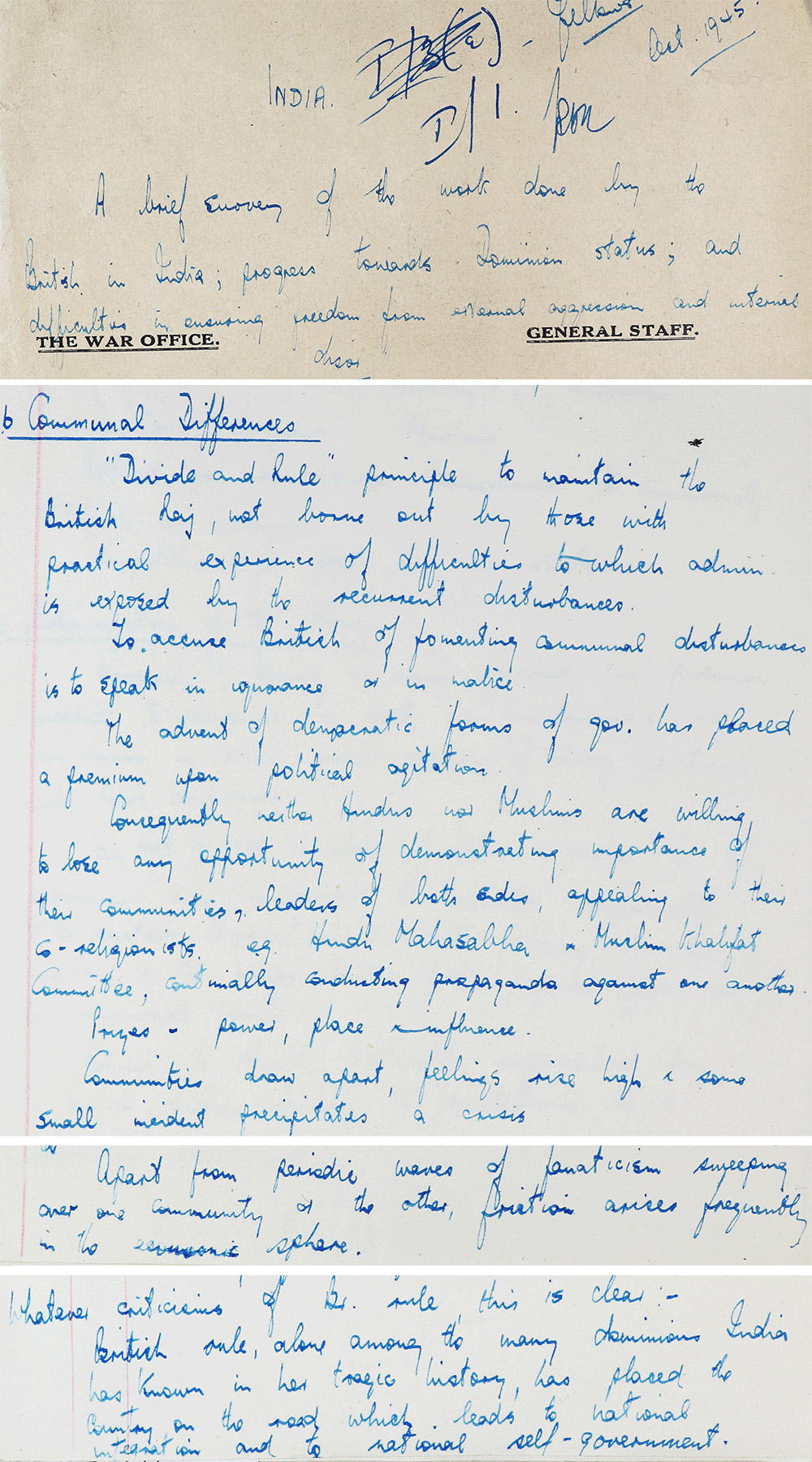
Notes on British involvement in India from 1945. Catalogue ref: WO 208/755
Context – This is a page from a set of notes made by an unknown British official. ‘Communal’ is not a term we use a lot today but was used in British-India by officials to describe tensions between religious groups. It was thought that Indian people had stronger religious beliefs than British people and, as a result were more likely to resolve things through violence.
Transcript
INDIA Oct 1945
A brief survey of the work done by the British in India; progress towards Dominion status; and difficulties in ensuring freedom from external aggression and internal disorder
THE WAR OFFICE GENERAL STAFF
Communal Differences
“Divide and Rule” principle to maintain the British Raj, not bourne out by those with practical experience of difficulties to which admin?is exposed by the recurrent disturbances.
To accuse British of fomenting communal disturbances is to speak in ignorance or in malice.
The advent of democratic forms of gov. has placed a premium upon political agitation.
Consequently neither Hindus nor Muslims are willing to lose any opportunity of demonstrating importance of their communities, leaders of both sides appealing to their co-religion (illegible) e.g Hindu Mahasabha and Muslim Khilafat Committee, continually conducting propaganda against one another.
Prizes- power, place and influence.
Communities draw apart, feelings rise high and some small incident precipitates a crisis.
Whatever criticisms of Br. Rule this is clear:
British rule, along among the many dominions India has known in her tragic history, has placed the country on the road which leads to national integration and to national self-government.
- When was this document written?
- How is this document written?
- What did the author mean by the title ‘communal differences’?
- What does the author think is causing divisions between religious groups? Hint: Look at the paragraph that begins ‘Consequently neither Hindus or Muslims are willing…’
- How effective does the author think British rule in India has been? Hint: Look at the final paragraph.
